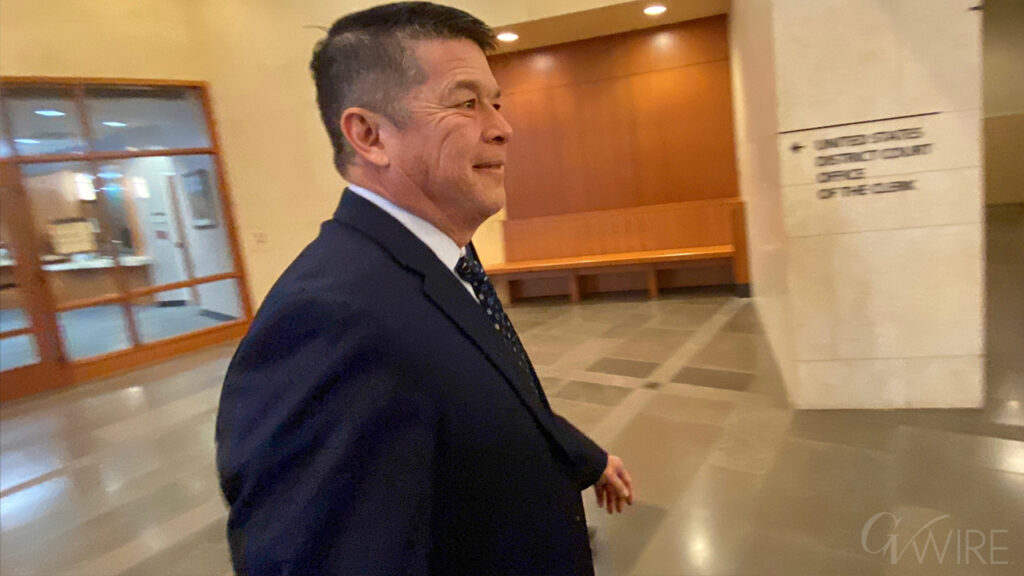Share
|
Getting your Trinity Audio player ready...
|
WASHINGTON -The U.S. Supreme Court declined on Thursday to hear a bid by Montana to revive a law that requires parental consent for minors to obtain an abortion, a measure challenged by reproductive health and abortion provider Planned Parenthood as a violation of the Republican-led state’s constitution.
The justices turned away an appeal by Montana Attorney General Austin Knudsen, a Republican, of a lower court’s ruling that invalidated the law under a state constitutional provision that protects an individual’s right to privacy.
Montana’s law prevents doctors from providing an abortion to a girl under 18 years old without the notarized written consent of a parent or legal guardian. Penalties for violations include fines or jail time. A minor may also obtain a waiver of consent from a youth court in certain circumstances.
The law was passed by the state legislature in 2013 but has remained blocked during years of litigation in the Planned Parenthood legal challenge. A separate state law requiring parental notice for a minor’s abortion is still in effect in the state.
Unlike in many Republican-led states, Montana’s laws still largely protect access to abortion following the Supreme Court’s landmark 2022 ruling that overturned the Roe v. Wade decision that had legalized abortion nationwide. Montana’s Supreme Court has recognized a right to abortion under the state constitution since 1999. Voters in 2024 approved a ballot measure to amend the state constitution to guarantee abortion rights.
Montana contends that the parental consent law is valid under the U.S. Constitution’s 14th Amendment due process protection, which the Supreme Court has said gives parents a fundamental interest in the “care, custody and control” of their children. Montana said that means parents have a right to participate in their children’s medical decisions.
Montana Supreme Court Strikes Law Down
The Montana Supreme Court struck the law down in 2024, finding that “a minor’s right to control her reproductive decisions is among the most fundamental of the rights she possesses.”
“Further,” that court said, “any parental right that exists within this framework is a right to parent free from state interference, not a right to enlist the state’s powers to gain greater control over a child or to make it more difficult for a minor to exercise their fundamental rights.”
In a filing, Montana told the Supreme Court that the state court’s ruling impermissibly “elevated a minor’s state constitutional rights over parents’ federal constitutional rights.”
Conservative Justices Samuel Alito and Clarence Thomas in a statement on Thursday wrote that the Supreme Court’s decision to turn away Montana’s appeal should not be interpreted as a rejection of the state’s argument, a likely signal of their interest in taking up a similar case in the future.
Emilee Cantrell, a spokesperson for the Montana attorney general, expressed disappointment in the Supreme Court’s decision not to hear the case.
“However, as Justices Thomas and Alito made clear today, this issue has not been settled by the courts and the legal battle is far from over,” Cantrell said. “Attorney General Knudsen will not waver in his support of parents’ longstanding and fundamental right to direct the care and upbringing of their children.”
Martha Fuller, president and CEO of Planned Parenthood of Montana, said in response to the Supreme Court’s decision: “Every Montanan has a fundamental right to privacy, and deserves the ability to control their own bodies and futures.”
“Montana courts, including the State Supreme Court, have affirmed the constitutional right to privacy, and Planned Parenthood of Montana will always do whatever we can to ensure that medical privacy and safe abortion access remain protected for Montanans and families,” Fuller added.
The Supreme Court already has taken up another case to be heard in its next term touching on the issue of abortion. In that case, the justices will consider reviving a New Jersey crisis pregnancy center operator’s bid to block the Democratic-led state’s attorney general from investigating whether it deceived women into believing it offered abortions.
—
(Reporting by Andrew Chung with additional reporting by John Kruzel; Editing by Will Dunham)
RELATED TOPICS:
Categories

Bowing to Congress, Justice Department Releases More Epstein Records


















